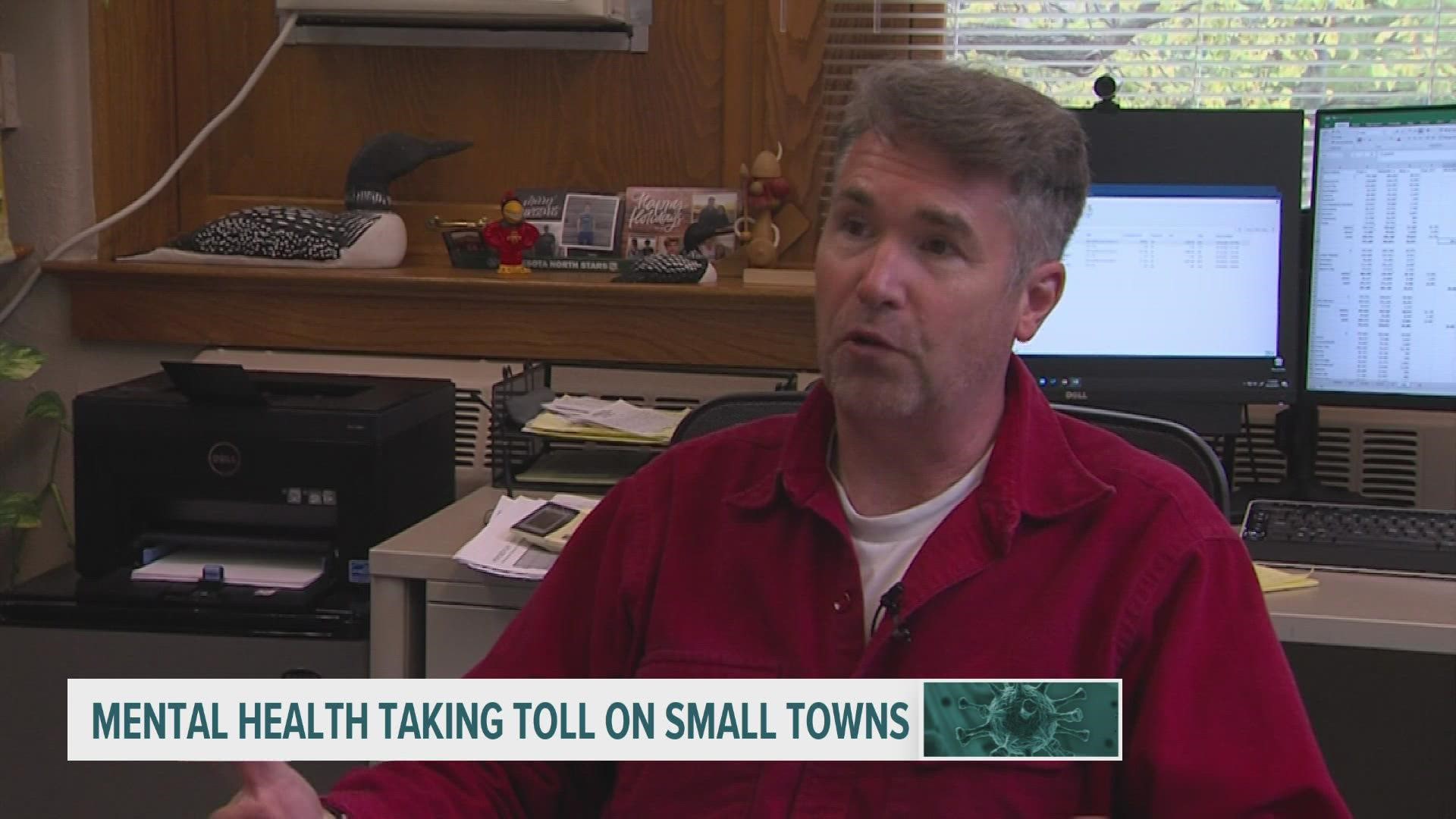AMES, Iowa — A new survey from Iowa State University and the University of Iowa suggests the pandemic has taken a toll on mental health for many Iowans, but especially those living in small towns.
According to the survey, almost 40% of Iowans who live in rural and smaller communities are struggling with their mental health during the pandemic.
ISU sociology professor Dave Peters' research found the case is even stronger for those in small towns dotting the Iowa countryside.
"Maybe it's a bit alarmist, but I think we have a looming mental health crisis if we don't deal with the emotional toll that COVID has taken on people" Peters said.
The study found 15% to 20% of small town Iowans are showing signs of depression.
"Pre-pandemic that what about that was about 6% to 7%, so we're almost seeing a doubling of depression," Peters said.
Those surveyed also said their relationships with friends and family have deteriorated.
Viola Linderbaum, a resident of the Ossian Hospice Center, has found a unique tool to stay connected during the pandemic—a GrandPad that her family gave her after the death of her husband.
"We did a lot of Zoom calls to my family and I would see them quite often that way," Linderbaum said.
The GrandPad became crucial during her own battle with COVID-19 during the holidays.
"I don't know if she would have survived during COVID-19 without it because we felt very isolated from her," said Dianne Ameling, Viola's daughter. "I could call her on the GrandPad and see how she was looking physically."
Peters said reviving social interactions with loved ones is one of the best ways to improve mental health. He encourages anyone struggling because of the pandemic to seek help from COVID Recovery Iowa here.
WATCH | Walking for a cause: NAMIWalks raises more than $130,000 for mental health resources

